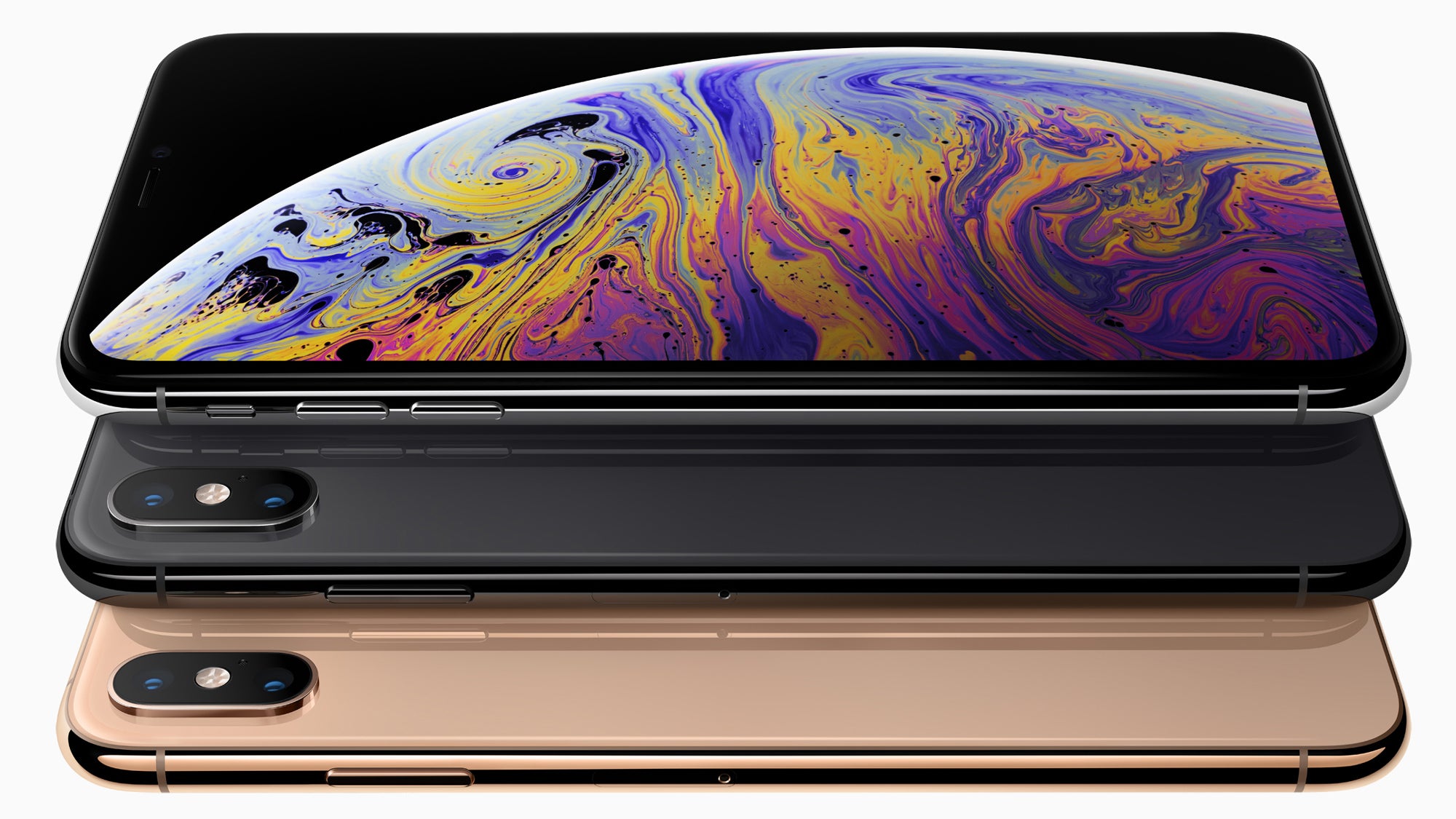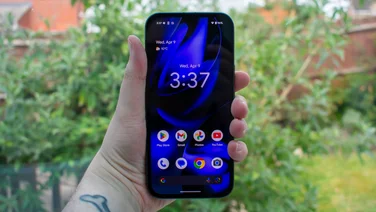To help us provide you with free impartial advice, we may earn a commission if you buy through links on our site. Learn more

Following months of speculation and tightly-guarded secrets under penalty of death, the iPhone Xs is finally official. Pulling back the curtains at the annual reveal event, Apple showed off its fancy flagship to the world for the very first time, and what an interesting smartphone it turned out to be.
READ NEXT: The best smartphones you can buy
We won’t go into specifics just yet – although you can read our in-depth iPhone Xs hub for all the juicy details – but in this article, we’re going to place two of this year’s best flagships into an arena and have them fight to the death. Below, you’ll find out which phone is best: the iPhone Xs or Galaxy S9.
Preorder iPhone Xs today
iPhone Xs vs Galaxy S9: Design
Apple’s flagship is identical to last year’s phone; featuring a lovely sandwich of glass and metal, a notched display, curved aluminium edges and the same Lightning port as most modern iPhones.

Samsung’s Galaxy S9 also looks just like its predecessor. There’s no notch – instead, featuring a chin and forehead bezel above and below the screen – and there’s a single rear-facing camera module. The phone also uses the more widely-used USB-C charging method and there’s a 3.5mm headphone jack.
iPhone Xs vs Galaxy S9: Specs
Processor
The iPhone Xs is powered by Apple’s own 7nm six-core A12 Bionic CPU. We’re yet to properly put it through its paces ourselves, but Apple has quoted a 15% performance improvement over last year’s iPhone X.
Samsung’s Galaxy S9 is fitted with Qualcomm’s Snapdragon 845 chipset – or Samsung’s Exynos 9810 equivalent if you live outside of the US or Korea. This is the fastest processor we’ve seen so far, but it’s not too surprising to think that the A12 chip might usurp Samsung’s S9 when it arrives later in September.
Display

The iPhone Xs has a 5.8in 2,436 x 1,125 resolution OLED display with a super-wide colour gamut and Apple TrueTone technology – the same tech found in Apple’s iPads. The Galaxy S9’s Super AMOLED screen also measures 5.8in from corner to corner, although the resolution is slightly higher at 2,960 x 1,440.
Battery life
While we don’t know the size of the Xs’ battery, we do know that Apple’s flagship will last 30mins longer on a single charge when compared with its predecessor. If you opt for the plus-sized Max variant with a slightly larger battery, that figure jumps up to an extra hour-and-a-half.
If that improvement is any indication, we can expect the iPhone Xs to last for around ten hours during our continuous video playback test. If that is the case, Samsung’s Galaxy S9 will be longer-lasting, with its 14-hour lifespan.
Camera
The iPhone Xs’ photographic capabilities are much the same as last year. A vertically-aligned 12-megapixel f/1.8 wide-angle lens sits alongside a 12-megapixel f/2.4 telephoto unit for added 2x optical zoom. Despite these similar specifications, Apple says the HDR algorithms are much improved, with an enhanced ISP thanks to the updated CPU. You’ll also be able to tweak depth of field after capturing the image.

The Galaxy S9 comes with a single 12-megapixel sensor with dual-pixel phase-detection autofocus and optical image stabilisation. There’s no secondary 2x telephoto lens, but the wide f/1.5 aperture allows much more light in – brightening up shots and capturing crisper details.
iPhone Xs vs Galaxy S9: Price
What’s most important for potential punters is how much each of these flagships will drain your bank balance. You’ll be expected to pay at least £999 for the “entry-level” iPhone Xs with 64GB of non-expandable storage. If you needed more space, the 256GB and 512GB variants will cost you a whopping £1,149 and £1,349.
Given the Galaxy S9 isn’t quite as new, you can currently pick one up for quite a bit cheaper than it originally launched for. At the time of writing, the 64GB variant is roughly £500, while the 128GB model will set you back around £620.
iPhone Xs vs Galaxy S9: Verdict
As with all of these comparisons between two very different phones and ecosystems – it all comes down to personal preference.
Chances are the iPhone Xs and the Galaxy S9 will be quite similar in terms of power, potential and finish. In all honesty, the decision you’re making here isn’t “do I want a Samsung Galaxy S9 or an iPhone Xs?” it’s, do I want to use iOS or Android? And that, my friends, is a different matter altogether.






